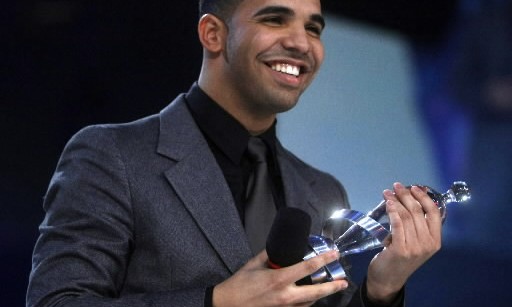 Music
Music
Will winning the Junos breakthrough artist award ruin your career?
by AUX staff
March 6, 2015
The most enduring, and perhaps charming, myth surrounding the Junos is that winning one—specifically the Breakthrough Artist of the Year award—will ruin your career forever. Artists have typically seen the award as the kiss of death: More than winning the album or artist of the year, the breakthrough artist award is seen as a curse, the accolade that will forever doom a band to unrealistic expectations (from both critics and themselves). Bands as decorated as Sloan, who’ve won fistfuls of Junos, have publicly stated their relief that they never won the awards’ rookie-of-the-year award.
So, it got us wondering: Is the curse real? Have previous winners of the Junos breakthrough artist award been doomed to mediocrity? Certain ex-winners didn’t fare as well, but others have become the biggest names in Canadian music. Here are some winners from both sides of the spectrum.
Alanis Morrisette
For a while, it seemed like winning a breakthrough artist Juno had, in fact, ruined Alanis Morrisette’s career. And that’s because she won the award way back in 1992 after releasing her first two albums, Alanis and Now is the Time, which established the ex-You Can’t Do That on Television star as a teen pop diva. After 1992, she went silent—the Juno curse, it seemed, had struck. That is, of course, until 1995’s career-defining Jagged Little Pill, which destroyed her scrubbed-clean image with anger-fuelled songs about Dave Coulier. She hasn’t left the cultural conversation since. Score: Morrisette: 1, Juno Curse: 0.
Holly McNarland
Holly McNarland was 1998’s breakthrough artist of the year, a year after she dropped Stuff, which had McNarland’s “Numb” charting on alt-rock radio. But did it sink McNarland’s career? Hardly. She’s released three albums since winning the award, and still continues her career as a touring musician.
Tal Bachman
Tal Bachman will be remembered for two things: “She’s So High” and being Randy’s son. But in 2000, when he won a Juno, he was an emerging artist in his own right: His debut album—which featured, yes, “She’s So High”—charted in Canada and the U.S., exhibiting a brand of mid-tempo alt-rock that counted Fastball, Semisonic, and Marcy Playground as brethren. Despite Bachman’s pedigree, though, he’d eventually succumb to the curse: He only released one more album, Staring Down the Sun, before ditching music. Since then, Bachman’s become a political commentator, an ex-Mormon, and a writer for The Equestrian News.
Not that he’s fully ditched music, though. Every now and again, he plays Ian Starglow, a fictional British glam rocker. We can’t make this stuff up.
Avril Lavigne
When the Junos crowned Avril Lavigne as its breakthrough artist in 2003, many felt that the award would be a career ruiner. Lavigne, it seemed, was a construction: She was a JNCO-rocking singer plucked from Napanee, surrounded by members of Closet Monster, and hailed as a corporate punk superstar. It might’ve sounded like a recipe for failure, but it hasn’t been: Avril has become one of the biggest Canadian exports of all time. Did the Juno Curse catch up to her? Hell naw.
Feist
When Feist won a Juno in 2005, she was already an established artist—she’d released one critically acclaimed solo album in 1999’s Monarch, and had spent time working with Broken Social Scene, By Divine Right and Peaches. So by the time she’d earned her Juno, she was riding the waves of 2004’s Let it Die, a career-making album in its own respect. Feist was already beloved by the mid-’00s, so the question changed slightly: Could the Juno Curse ruin an already established career? In short, no: “1234,” from 2007’s The Reminder, famously scored an Apple commercial; Metals, her next album, would win the Polaris Music Prize; and along the way, Leslie Feist became one of Broken Social Scene’s best-recognized members.
Daniel Powter
Remember Daniel Powter? He rose to prominence in an era of Coldplay and James Blunt, who released the era’s biggest banger in “You’re Beautiful.” Powter, for his part, had the treat-yourself hit with “Bad Day,” which has scored countless bubble bath-and-dark chocolate dates. (Don’t judge. We’ve all been there.) Like McNarland, Powter wasn’t sunk by the Juno Curse, but he hasn’t recreated the visibility of his debut album—2008’s Under the Radar and 2012’s Turn on the Lights charted in the U.K. and Japan.
Tomi Swick
The late 2000s saw plenty of now-established stars winning the best newcomer award: Lights, Serena Ryder, and Drake—more on him later—dominated the late aughts. But what of Tomi Swick, who won the award in 2007 after releasing Stalled Out in the Doorway? After spending the year touring with the Barenaked Ladies, we didn’t get another album. Which isn’t to say that he disappeared: According to his Twitter, he’ll soon be playing a show with the Killjoys.
Drake
Did Drake fall victim to the Juno curse after taking home an award in 2010? Five years on, he released If You’re Reading This It’s Too Late, and every single song charted on Billboard’s hip-hop top 100. The answer is, quite clearly, no.
We’re partnering with the Junos in the leadup to the awards in March. Watch the JUNOS on March 15 at 7pm EST on CTV and subscribe to Juno TV on YouTube.
Tags: Music, Cancon, News, Alanis Morrisette, Avril Lavigne, Daniel Powter, Drake, Feist, holly mcnarland, Junos 2015, Tal Bachman, Tomi Swick





